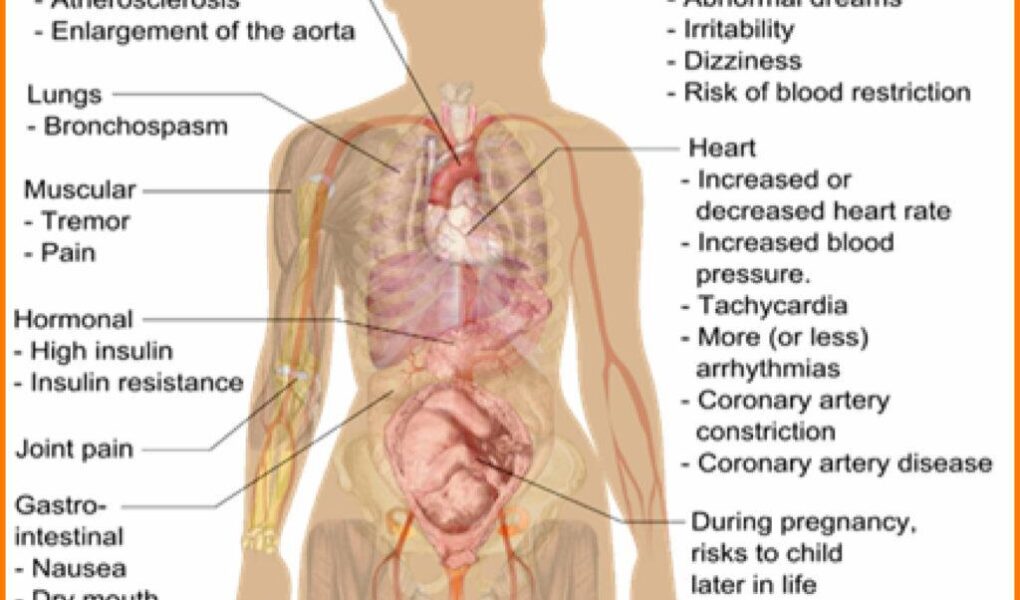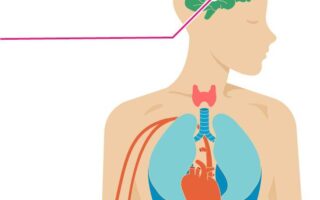As society continues to navigate the ever-evolving landscape of cannabis legalization, the conversation surrounding marijuana often oscillates between its celebrated benefits and its potential drawbacks. While many extol the virtues of this versatile plant for managing pain, alleviating anxiety, and sparking creativity, it is essential to also shine a light on the less-discussed, darker facets of marijuana use. This article aims to explore the negative health effects associated with marijuana consumption, a subject that merits careful consideration as we strive for a comprehensive understanding of its impact on individual well-being and public health. By examining the scientific evidence and anecdotal experiences surrounding marijuana, we seek to illuminate the complexities of its use and encourage informed discussions about its place in our lives.
Table of Contents
- Understanding the Brain: Cognitive Decline and Marijuana Use
- The Respiratory Impact: How Smoking Affects Lung Health
- Mental Health Matters: The Link Between Marijuana and Anxiety Disorders
- Navigating Dependency: Recognizing and Addressing Marijuana Addiction
- Q&A
- Key Takeaways
Understanding the Brain: Cognitive Decline and Marijuana Use
Cognitive decline is a complex issue, intricately linked to various factors, including age, genetics, and lifestyle choices. Research suggests that marijuana use may contribute to negative health effects on cognitive function, particularly in older adults. Some studies indicate that regular consumption can lead to impairments in short-term memory and attention span. This is especially concerning for individuals already at risk of neurological conditions, as they may experience exacerbated cognitive decline. It’s essential to consider the following aspects:
- Impaired Memory: THC, the psychoactive component of marijuana, may alter brain chemistry, affecting memory formation.
- Slowed Reaction Time: Regular users can experience delays in response, impacting their ability to perform tasks requiring quick reflexes.
- Increased Anxiety: Paradoxically, marijuana may heighten anxiety for some, further impacting cognitive clarity.
Moreover, the long-term effects of marijuana on brain health are still being researched. Some evidence points towards potential neurodegenerative changes with consistent use. A recent study highlighted a correlation between frequent marijuana use and reduced gray matter volume in areas of the brain responsible for decision-making and emotional regulation. This table summarizes the key areas affected by marijuana use:
| Brain Area | Effect of Marijuana Use |
|---|---|
| Hippo-campus | Memory formation challenges |
| Prefrontal Cortex | Impaired decision-making abilities |
| Amygdala | Increased emotional response |
The Respiratory Impact: How Smoking Affects Lung Health
Smoking, whether tobacco or marijuana, poses significant threats to lung health. Inhalation of smoke introduces a cocktail of harmful chemicals that can lead to various respiratory issues. Chronic bronchitis and emphysema are just a few of the conditions commonly associated with habitual smoking. The lungs become inflamed and obstructed, making it increasingly difficult to breathe. In fact, studies suggest that marijuana smoke contains many of the same irritants and carcinogens as tobacco smoke, potentially leading to similar long-term consequences.
Moreover, the adverse effects of smoking on lung health extend beyond immediate discomfort. Long-term exposure can compromise lung function and reduce respiratory efficiency, leading to symptoms that can drastically impact one’s quality of life. Key consequences include:
- Decreased lung capacity: Regular smoking can lead to diminished lung function.
- Increased risk of infections: Smoke weakens the immune defenses in the lungs.
- Coughing and wheezing: Persistent symptoms may indicate chronic lung issues.
To illustrate the risks, consider the table below outlining the potential risks associated with smoking marijuana versus tobacco:
| Substance | Risks |
|---|---|
| Marijuana | Bronchitis, potential lung infections, cough |
| Tobacco | Lung cancer, chronic obstructive pulmonary disease, emphysema |
Mental Health Matters: The Link Between Marijuana and Anxiety Disorders
The relationship between marijuana and anxiety disorders is complex and often misunderstood. While some people use cannabis to alleviate their anxiety, studies suggest that it can actually exacerbate anxiety symptoms in others. The active compounds in marijuana, primarily THC, can lead to feelings of unease, paranoia, and heightened anxiety in susceptible individuals. This paradox raises questions about the efficacy of marijuana as a therapeutic agent for mental health issues, particularly when considering the long-term ramifications of its use.
To better understand the potential negative impacts of marijuana on mental health, consider the following factors:
- Increased Heart Rate: Marijuana use can trigger rapid heart rates, which may mimic the symptoms of anxiety.
- Altered Perception: THC can distort perceptions of reality, leading to heightened anxiety in some users.
- Dependency Risks: Regular use can lead to psychological dependence, which may contribute to increased anxiety levels when not using the substance.
- Withdrawal Symptoms: Individuals may experience anxiety and irritability during withdrawal from marijuana, further complicating mental health issues.
Navigating Dependency: Recognizing and Addressing Marijuana Addiction
Marijuana addiction can creep up on individuals, often masked by the initial perception of its harmlessness. Recognizing the signs is imperative for those entangled in its grip. Symptoms may include:
- Increased tolerance, requiring more of the substance to achieve the same effects
- Experiencing withdrawal symptoms when not using
- Neglecting responsibilities and activities once enjoyed
- Persistent desire to cut down or regulate use, despite wanting to
Understanding these indicators helps illuminate the path towards recovery, urging individuals to face their dependency with courage and determination.
Addressing marijuana addiction requires a multifaceted approach, combining psychological support and practical strategies. Options for treatment may include:
- Cognitive-behavioral therapy, which aims to modify harmful thought patterns
- Support groups, fostering community and shared experiences
- Mindfulness and meditation practices to promote self-awareness
Incorporating these elements can significantly enhance the chances of overcoming addiction, paving the way for a healthier and more fulfilling life. Understanding the roots of dependency can transform the narrative from one of shame to one of hope and resilience.
Q&A
Q&A: Exploring the Negative Health Effects of Marijuana
Q: What are some common negative health effects associated with marijuana use?
A: While marijuana is often touted for its medicinal benefits, it can also lead to several health issues. Common negative effects include impaired cognitive function, respiratory problems (especially with smoking), increased heart rate, and mental health issues like anxiety or paranoia. Long-term use may also result in dependency.
Q: How does marijuana affect cognitive function?
A: Marijuana primarily interacts with cannabinoid receptors in the brain, which can temporarily impede short-term memory, attention, and decision-making abilities. Users may experience difficulties in concentrating during tasks, leading to potential challenges in both academic and professional settings.
Q: Are there any respiratory concerns linked to smoking marijuana?
A: Yes, smoking marijuana can adversely affect lung health. Similar to tobacco smoke, marijuana smoke contains harmful substances and irritants that can lead to chronic bronchitis, reduced lung function, and other respiratory complaints. Vaping and edibles may mitigate some risks, but they come with their own potential health concerns.
Q: Can marijuana use lead to mental health disorders?
A: Research indicates a complex relationship between marijuana use and mental health. While some individuals may use marijuana to alleviate symptoms of anxiety or depression, excessive use has been linked to increased anxiety, paranoia, and even psychosis, particularly in those with a predisposed vulnerability.
Q: Does marijuana consumption impact heart health?
A: Indeed, marijuana can lead to an increased heart rate and changes in blood pressure shortly after consumption, which may pose risks for individuals with preexisting heart conditions. While the long-term cardiovascular effects are still being studied, users should approach with caution, especially if they have heart disease.
Q: Are there withdrawal symptoms when someone stops using marijuana?
A: Yes, while not as pronounced as those associated with other substances, withdrawal symptoms can occur. They may include irritability, insomnia, decreased appetite, and mood swings. These symptoms can make it challenging for regular users to quit or reduce their marijuana intake.
Q: Does marijuana use have any impact on academic and occupational performance?
A: Studies suggest that marijuana use, particularly among younger individuals, can negatively affect academic performance due to impaired cognitive function and motivation. In the workplace, this could translate to decreased productivity, attentiveness, and increased risk of accidents, especially in jobs that require high levels of focus.
Q: What should individuals consider before using marijuana?
A: Individuals should weigh the potential benefits against the risks. Factors such as personal health history, existing mental health issues, and the setting in which marijuana will be used are crucial for making an informed decision. Consulting healthcare professionals can provide guidance tailored to individual circumstances.
Q: How can individuals mitigate the negative health effects if they choose to use marijuana?
A: If someone opts to use marijuana, they can potentially mitigate risks by choosing methods other than smoking, such as edibles or tinctures. Using lower-potency products, setting limits on frequency and quantity, and staying informed about one’s own mental and physical health can also help in minimizing adverse effects.
—
Q: What is the importance of understanding the negative health effects of marijuana?
A: Awareness of the negative health effects is vital for informed decision-making. Understanding these risks empowers individuals to make choices that prioritize their health and well-being, facilitating discussions about safety, regulation, and ultimately, personal responsibility in substance use.
—
This Q&A format addresses the complex issue of marijuana’s health effects while providing nuanced and neutral information that allows readers to form their own conclusions.
Key Takeaways
while marijuana is often celebrated for its potential therapeutic benefits, it is crucial to recognize and understand the darker side of its consumption. Like many substances, it carries with it a complex array of health effects that can manifest in both subtle and significant ways. As we continue to explore the evolving landscape of cannabis use, informed conversations and careful consideration are essential. By acknowledging the potential risks alongside its benefits, we can foster a more balanced dialogue that prioritizes health, safety, and well-being. As we move forward, let us remain vigilant and informed, ensuring that choices regarding marijuana are grounded in comprehensive understanding rather than mere assumption. The journey into the world of cannabis is multifaceted, and it is our responsibility to navigate it thoughtfully.



